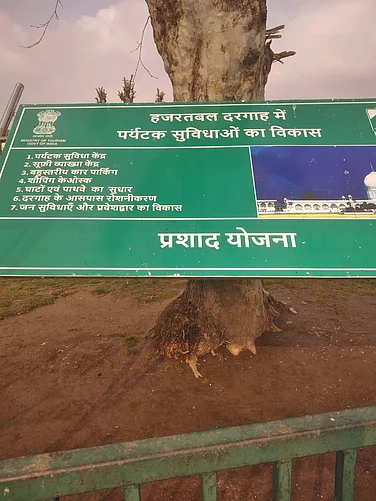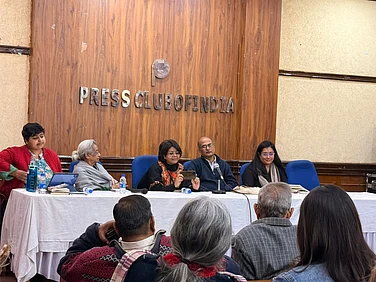LEARN how to prepare rotis and sattu; from now on you will serve food while your women sit in Parliament," a mid dle-aged MP from Bihar was heard advising his colleagues in the Central Hall of Parliament on the penultimate day of the Budget session. The subject of his ire: the 81st Constitution Amendment Bill, seeking a 33 per cent quota for women in the Lok Sabha.
The alarmed response from his receptive audience made it clear that there was little hope of the Bill becoming law during the Budget session, despite Prime Minister H.D. Deve Gowda's assurances that it would be taken up. "We will not come to Parliament tomorrow," many MPs were heard saying just the day before.
Sure enough, on September 13 only 230 MPs showed up, far short of the 273 required to approve a constitutional amendment. Curiously, no party whip had bothered to ensure attendance. "The same thing happened in 1979 with the SC/ST Bill. It's not the first time a measure for social justice has not attracted a quorum," said activist Brinda Karat.
Ultimately, the Bill wasn't even put to vote; despite protests by women MPs, it was referred to a joint select committee of Parliament, with the assurance that it would be taken up on the first day of the winter session. "It appears political parties were not serious from the beginning," said Kokila Vyas, member of the National Commission for Women (NCW).
Women's groups charge Gowda with "breach of trust", unconvinced by his claim that the Government's intentions are pure. Three days of aggressive lobbying had secured a categorical assurance from Gowda and other party heads that the Bill would be taken up on the last day of the Budget session. A promise that wasn't kept.
Opposition to the Bill has been covert; it is, after all, part of the United Front's common minimum programme. While no objections have been voiced on the issue of reservation for women per se, there has been what women activists call "deliberate dilly-dallying". First, a private member's Bill seeking to extend the quota for women to the Rajya Sabha—but pegging it at 25 per cent. Next, BJP and Samata Party MPs
Uma Bharati and Nitish Kumar—clearly with an eye on the Uttar Pradesh elections—insisting on a further quota for OBC women. "The fact that there is no quota for OBC men had obviously escaped their notice," commented activist Nisha Sahay. Finally, the setting up of a select committee, ostensibly to plug loopholes in the Bill. United Front members didn't see eye to eye on the issue. Defence Minister Mulayam Singh Yadav reportedly felt that the quota was far too generous and should be scaled down. The BJP, too, appeared to be in two minds, with some of its women MPs in favour of deferring the Bill. "The sitting MPs, specially the younger ones, are all worried about their careers," observed NCW Secretary Padma Seth, pointing out that many of them could lose their seats to women. The question of extending the quota or working out the modalities of identifying reserved seats could well have been taken up after the Bill was passed, as NCW chairperson Mohini Giri pointed out.
One of the principal dangers posed by a quota for women, admitted Karat, is that it might be hijacked by vested interests. However, she said that feminist Madhu Kishwar's fear that the Bill would lead to a "Bibi Raj", with tickets going to wives of all sitting MPs, is a 'frivolous' objection. "It comes from people who see the women's movement as autonomous from politics," she noted. "The Bill is certainly not a panacea for all forms of gender discrimination. But it is a step in the right direction."
The issue of a quota for women was first raised in the '50s. It was reiterated in the Status of Women report of 1975 and the National Perspective Plan of 1988. But the nomination formula was rejected by the women's movement, which favoured electoral politics. The 73rd and 74th Constitution Amendments, providing quotas for women in local bodies, have had a positive effect. While some women have wound up being figureheads, many more have been genuinely empowered.
Activists point out that the next logical step would be a quota for women in Parliament. In deferring the Bill at the 11th hour, however, they say that "all the parties have been exposed". Whether they make amends will only be clear in the winter session of Parliament.


























